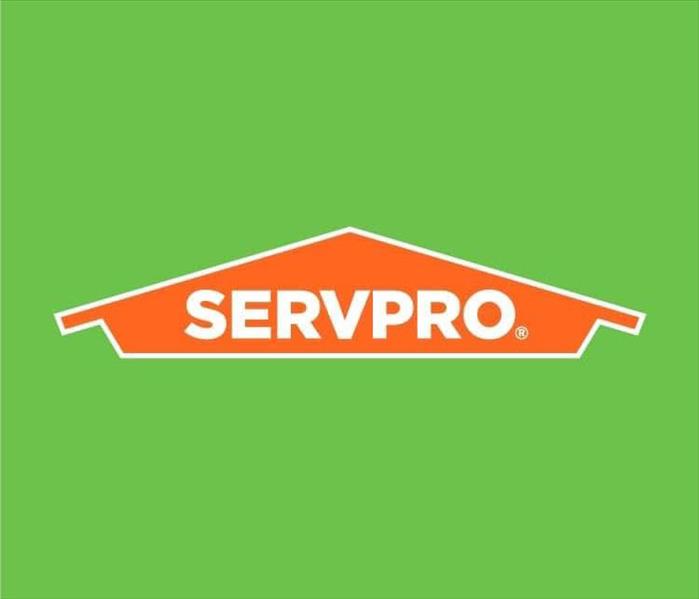Filing Insurance Claims of Business Damaged by Storm: How to do it?
6/9/2022 (Permalink)
 Interested in emergency storm damage restoration? SERVPRO of West Volusia is nearby to help you, no matter how big or small the job, we’re here 24/7!
Interested in emergency storm damage restoration? SERVPRO of West Volusia is nearby to help you, no matter how big or small the job, we’re here 24/7!
Is your business damaged or disrupted by a storm, fire, or other insured calamity?
Dealing with the aftermath of a storm is likely to put your business under extreme stress, which may be difficult to manage without the help of a professional team to make the commercial storm damage cleanup.
Your insurance provider will either send you a proof of loss form to fill out yourself or set up an appointment for an insurance adjuster to evaluate the site and walk you through the claims procedure after you report a claim.
Adjusters are professionally qualified and licensed to assess damage, and different sorts of claims may necessitate the expertise of different claims adjusters, so you may be assigned to more than one adjuster.
You might have a claims professional examine structural damage and a content specialist assist with personal property loss, for example. There may also be a different claims adjuster if you have flood insurance or separate wind damage coverage through a state-run insurance pool.
The adjuster (or adjusters) will analyze the facts and your policy to assess coverage, and you will be asked to acquire repair estimates as part of the claims process. The more detail you can provide regarding the damage, the faster your claim will be resolved.
The six stages below will assist you in preparing for the claims process:
- Contact your insurance company as soon as possible.
If you've evacuated or are unable to reside in your home, make sure your insurance provider knows how to contact you. To begin the claims procedure, customers can contact their insurer by phone, Internet, or mobile app. If available, include your insurance number, loss location, cell phone number, and backup contacts. If at all feasible, try to meet the claims adjuster at your home or place of business, assuming it is safe to do so.
- Make any necessary immediate repairs and lock up your home.
Take actions to safeguard your property, prevent further damage, and shorten the time it may take to restore it even before the adjuster comes, such as making acceptable interim repairs to avoid further damage and securing features such as windows, doors, and roofs as needed.
Before planning for a commercial storm damage cleanup, the insurance agent should first see the damage, don't make any unneeded repairs to the property because it may cause more damage or harm to you or your family.
- Gather important business documents.
Gather any relevant business records you'll need to substantiate the value of any damaged equipment, inventory, or structures you're including in your commercial insurance claim.
You'll need proof of income the business was generating both before and after the interruption began for business income (also known as business interruption) claims, so gather all of your financial documents, including tax returns, monthly sales tax returns, business contracts, budgets, financial statements, and other documents relevant to calculating the projected income of your business.
The amount of lost business income can then be calculated in collaboration with your insurance.
- Keep track of all the costs associated with protecting or repairing your business. If your company is forced to close, you will need to submit information on the cost of operating from a temporary site, accurate records of business activities, and a list of expenses that have persisted while your company has been suspended, such as advertising, utilities, and so on. Loss or damage to automobiles, vans, trucks, or specialized vehicles that could jeopardize your ability to conduct business should also be reported.
- Photograph any debris or destroyed things, and check with your insurance company to see if the debris may be removed.
In general, you should hold off on throwing away any damaged things until the claims adjuster arrives. If you must dispose of some goods, notify your insurance company and photograph or record the damage before discarding the items. Many insurers now accept photographic evidence via the internet.
If you are allowed to remove any debris, you may need a professional team to help you with this, you might want to reach out to the nearest team to start the storm damage restoration of your home or business place.
- Be organized.
Keep the insurance claim number, adjuster and other insurance company contact information, images of the damage, receipts, repair bills, and estimates. Keep all of your papers organized so you can quickly refer to it if you have any queries.
You can verify the progress of your claim with your insurer by phone or online once you've reported it. You can view claim information, register for direct deposit of qualified claim payments on qualified losses, submit documents, and communicate with your claims adjuster via an online account.
Conclusion
The financial protection you've acquired may come to depend on the survival of the firm you've worked so hard to develop, which is why getting business insurance properly is so vital and so is finding the right company to help you with storm damage restoration.
Glad we have SERVPRO of West Volusia nearby to help you, get in touch immediately through our contact, no matter how big or small the job may be, we’re here 24/7!






 24/7 Emergency Service
24/7 Emergency Service